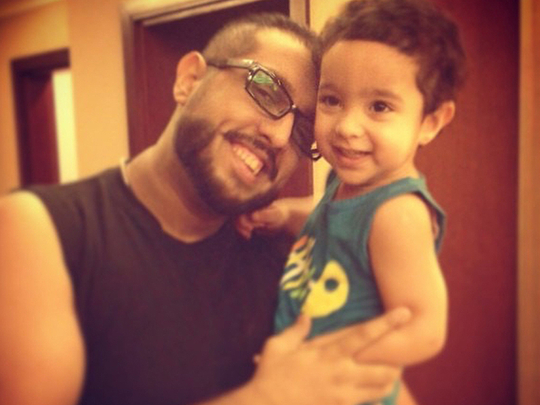
Dubai: In a recent edition of the Denmark-based Lego Club magazine, it ran an article featuring beauty tips for five-year-old girls. It gave them insights into what haircut would suit the shape of their face. It went on to give them tips on how to look more attractive. At such a young age, could being exposed to such information influence children negatively?
Gulf News reader Abdul Rahim, a managing director based in Dubai, has a son who is two years old, and believes parenting is his biggest responsibility.
He said: “It all depends on how you raise your children. Yes, at times it is difficult but you have a responsibility and you need to manage it. People do say that being a parent is easy, but I can say one thing for sure — it is a 24/7 job.”
When asked how he feels about his son being exposed to so much information at such a young age, Rahim says it is concerning.
He said: “I am concerned that he might pick up words that are inappropriate or learn information that is not right for his age. There are both pros and cons to the overexposure. We try to avoid it as much as possible. If I hear him say something wrong, I immediately explain to him why he shouldn’t repeat it. He realises it and immediately changes the topic.
“As far as the media is concerned, there is a lot of information out there. When I was his age, I didn’t know much. My parents would dress me as they wanted. Only when we were in our teenage years, we learnt about fashion and other things and started having an opinion. If a magazine tells children how to dress or cut their hair, it is concerning. People will think we are bad parents and we’re teaching our child information that shouldn’t be learnt at his age. However, you can’t entirely avoid it. So, as parents, we need to keep a close watch on what our children are reading or watching.”
Rahim says he wasn’t allowed to carry a mobile phone until he was 16 years of age. However, children have easier access to gadgets now.
He said: “Technology has made life both easy and hard. Young children know how to use tablets, unlock smartphones, or play videos and their favourite games. That’s the harder part for me, as my son refuses to eat if he is unable to watch a video on my tablet device. Unless and until he has a tablet placed in front of him on the dining table, he won’t even take a bite. On the other hand, the easier part is that if you have some urgent work, technology helps a lot. I can give my son the phone or tablet and he can sit quietly, while I finish all my work. I don’t agree with this technique, but it does work.
“Children try to imitate what they see. We are always on our phones or tablets and they see us. Then, they want to do the same. Let’s not destroy their lives by just letting them sit in one place with their eyes glued to a piece of modern technology. In my son’s case, I make sure that he plays outdoors. It helps him become energetic and keep fit. As a parent, I want him to have a healthy lifestyle as he grows up.”
Rahim thinks there should be a limit on how much access children have to technology.
He said: “I don’t think technology is acceptable at all times. There are children who spend 10 hours a day continuously using a gadget, which I’m sure would lead to health problems, like obesity or issues with their vision. It can also cause a lack of sleep and children cannot then concentrate on anything properly. I am not in favour of allowing children to use gadgets all the time, especially at an early age. Too much of a good thing is bad.”








